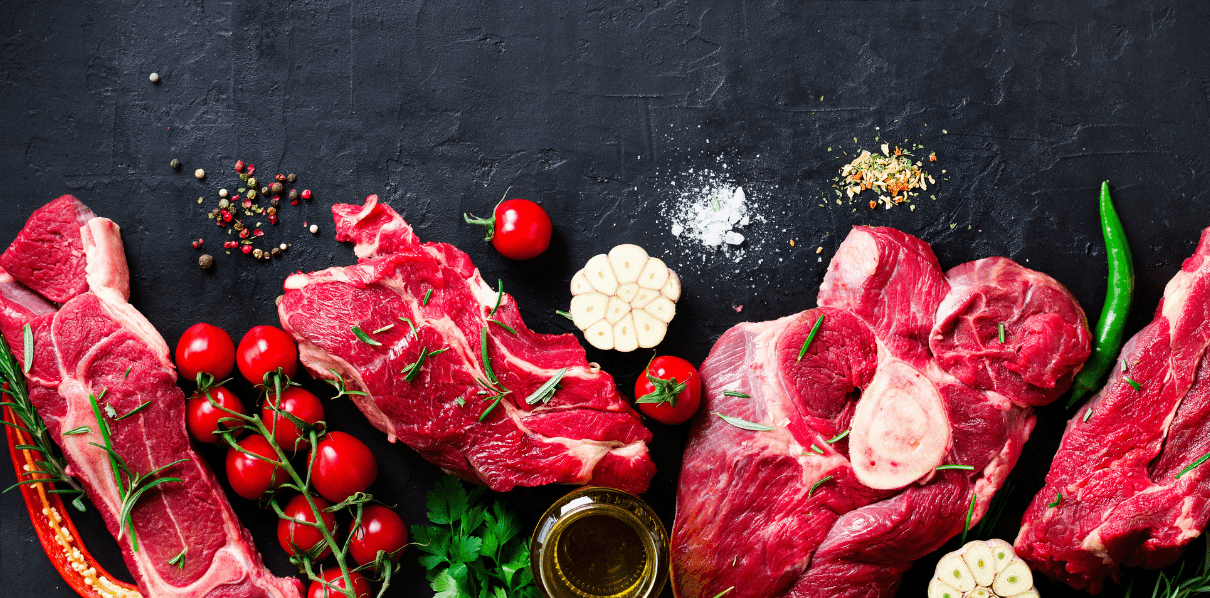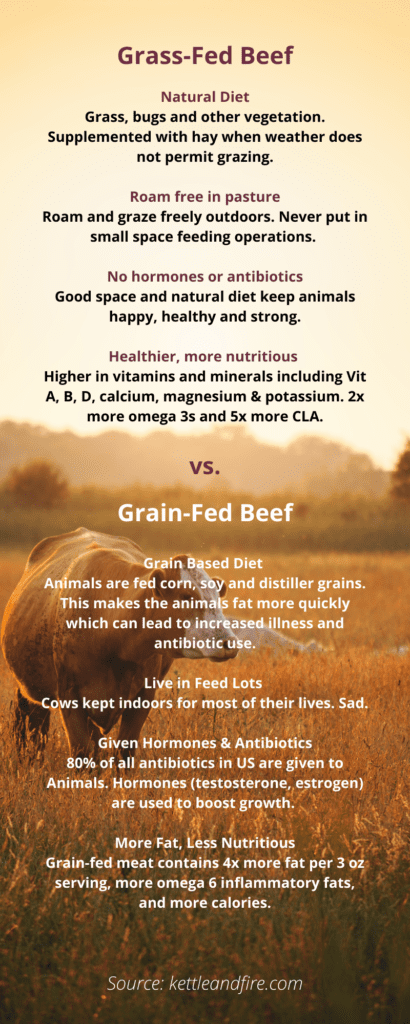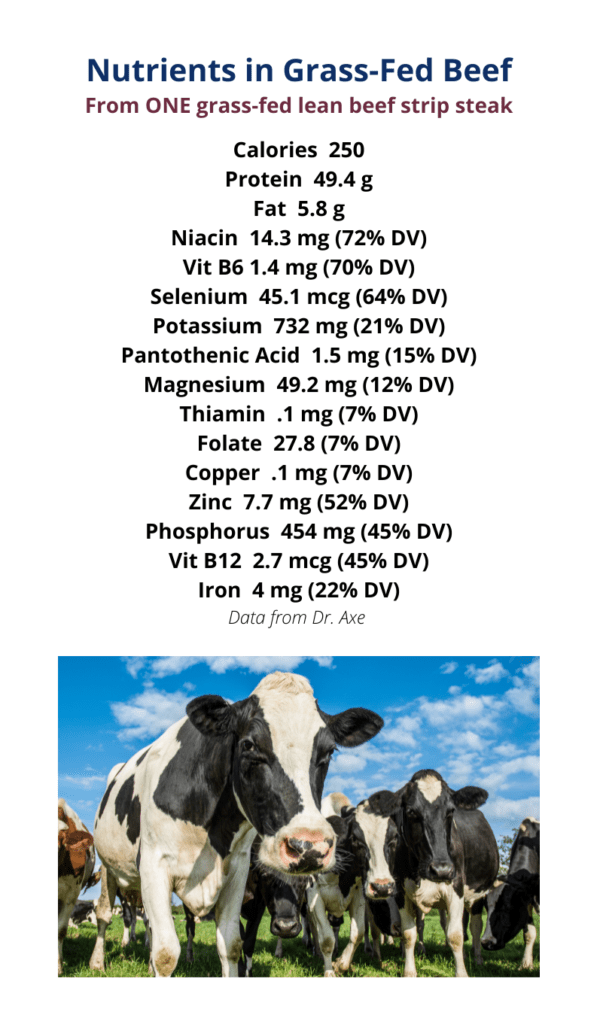
The Meat Dilemma
To eat meat or not eat meat
Should I be a vegetarian or vegan for the animals or the environment or both? These are good questions that lots of people are mulling after viewing documentaries and mainstream media. I’ve actually thought about the meat dilemma A LOT and have done some research. Here’s what I think.
The problem is multi-dimensional.
Animal Welfare
If animal cruelty is driving you, there are ways to eat meat that are more humane. Look to family farms and organic farms that are sustainably raising happy grass-fed animals the old- fashioned way. The meat is fantastic and much better for you because of the food the cows eat. Animals are treated as they should be – roaming around eating grasses and bugs and such.
Grass-fed beef contains lots of vitamins, good-for-you fats and no added hormones or antibiotics. Much better than a sad cow that is from the big factory farms. See the infographics below. If it’s animal treatment that has you contemplating veganism, there is an easy way around the problem – by eating animals humanely treated on smaller farms, a.k.a. grass-fed beef.

The Environmental Question
Factory agriculture and factory animal farms use a lot of resources, deplete the soil of important nutrients and harm the animal. Fruits and vegetables are less tasty as well as less nutritious. Avoid buying conventional fruits, vegetables and meats.
Sustainable agriculture is a system that includes animals to help fertilize and nurture the soil back to peak status. Animals eat the grasses and bugs and then poop on the land, which fertilizes the soil and adds nutrients to help the plants grow. Rinse and repeat. Animals have a place in organic farms and have their place in the growing cycle.
That said, eating more plants and fewer animals is good for you and good for the environment. Meat is costly to produce (uses lots of water) and eating more veggies is always a great idea for good health. Therefore, plant-forward or plant-heavy might be a solid lifestyle solution.
Personalized Nutrition
Adopting a vegetarian, vegan or omnivore (or other) diet is a very personal decision. Each body needs what it needs. Some feel better and more energized eating meat daily. Some need it weekly. Some need it occasionally. Some do not need any meat and feel light and nourished with more grains and fruits and veggies. Literally, each body is different and therefore should have an individualized food plan that matches its needs. We need to respect that there is NO ONE RIGHT DIET for everyone.

Be Mindful + Listen to Your Body
If you decide to eat meat, be mindful of the quality of the meats you’re buying. If you’re eating vegetarian or vegan, be mindful of the quality of veggies you’re buying. In either case, quality matters and it is a very personalized decision.
Shop with Care
Do your research. TheNational Grass Fed Organizationis a great start. They offer an interactive map showing you farms/ranches so that you can FIND direct farm-to-table sources. It is normally a little cheaper to buy direct from the farmer or rancher. I buy my meats fromFlying B Bar Ranchand love that I can select one steak or 20 pounds at once. The cost for grass-fed beef is a little bit more (maybe $2-3 more per pound), but worth it for the added nutrition and the elimination of the anti-nutrients.
King Soopers does have grass-fed beef on the shelves. Just remember it is leaner than your normal hamburger, so cooking time is about half as long and it will overcook easily (so stand by the grill).
For sustainable well-sourced salmon, check outSitka Salmon Shares.
The same philosophy translates to eggs. Buy happy hen eggs, otherwise known as PASTURED EGGS. The nutrients are superior and the animals are happy, doing what they do, versus in a hen house being sad. Find happy eggs at the regular grocery store. I buyVital Farms Eggs.
For help navigating the worlds of veganism and vegetarianism, pleasecontact our holistic nutritionists. It’s a personal puzzle and we can assist in figuring out what’s best for your body.
Read more aboutvegetarian dietsand book afree 20-minute consultationwith Healthy Nest Nutrition owner Robin Hutchinson.
